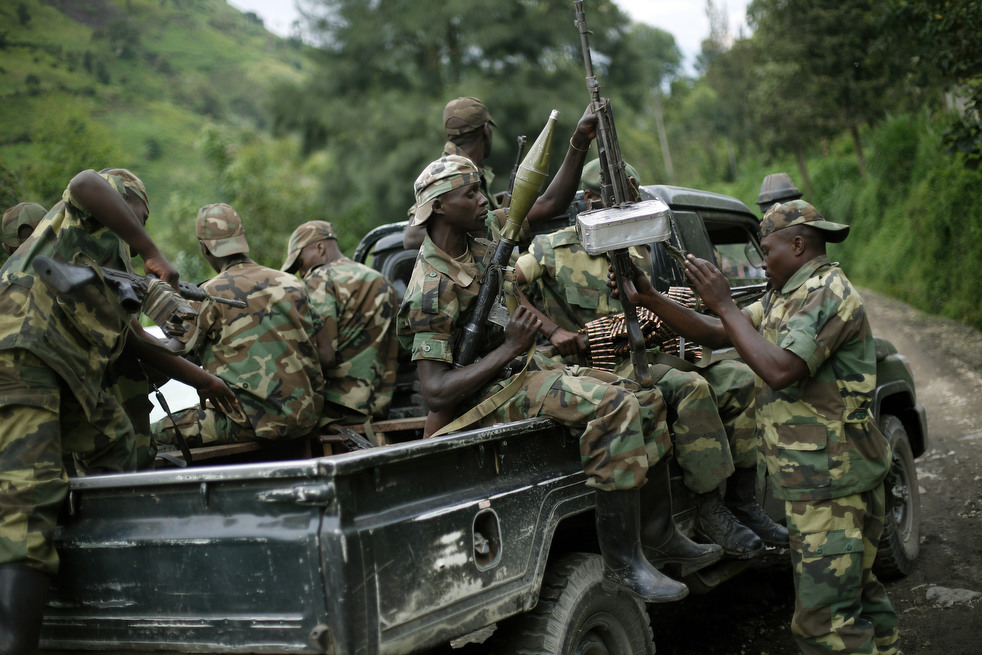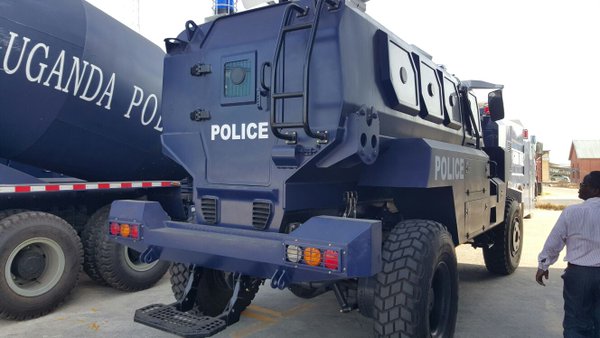December 30, 2008 (YAMBIO) — Recent attacks on the innocent civilian populations in Western Equatoria State (WES) by the Ugandan rebel Lord’s Resistance Army (LRA) pose a threat to food security and stability in the state, said the state governor today.
The Lord’s Resistance Army, a cultish armed group that arose in the wake of a crushed Acholi rebellion on Northern Uganda more than 20 years ago, has long terrorized Acholis, southern Sudanese and others with child abductions, murders and trademark mutilations.
Though the LRA had been thought to be near defeat, it renewed its horrific attacks and looting after the Ugandan, Southern Sudanese and Congolese armies launched a joint military offensive mid-December against the LRA rebels, who had been chased off to the densely forested Garamba National Park in the Democratic Republic of Congo (DRC) with their leader, Joseph Kony.
The attack came after Kony repeatedly failed to show up to sign a peace deal with the government of Uganda. Apparently in retaliation, LRA guerillas slaughtered approximately 486 people in the DRC since Christmas day, according to the aid agency Caritas Dungu-Doruma. The massacres took place in an area of northern Congo including Faradje, Duru, Gurba, Doruma, and Province Orientale.
Many Congolese refugees are believed to have fled to the bush and jungle forests along the Sudan-DRC border.
“Civil and food insecurity has grown in the villages bordering DRC,” stressed Governor Jemma Nunu Kumba.
“The LRA are attacking and looting communities, including parts of Maridi, Ibba, Yambio, Ezo and Nzara counties, as they continue to escape the regional operations,” she said, referring to areas bordering DRC.
Kumbu added that, “the state government is working hard for the head count of the refugees and internally displaced persons.”
Yet the governor also speculated that LRA-related insecurity could be reduced if the international community pursues Kony to sign the already negotiated document, [but] not to negotiate.”
The on-off peace talks with the LRA started in 2006 under the mediation of southern Sudanese Vice-President Riek Machar, but stalled repeatedly, especially after the International Criminal Court placed arrest warrants for Joseph Kony and his senior commanders.
Attacks last year caused similar worries about food security in WES.
The WES governor noted, “the recent attacks by the scampering rebels have caused more Congolese refugees to flee to WES, about 2,000 Congolese are believed to be in Nzara and Yambio in the last ten days. UNHCR is screening them.”
“The continuous influx of the refugees is a burden to the state government,” worried the state governor.
The state governor appealed to the international community to provide humanitarian assistance to the state and support the regional efforts to flush out the LRA in the region.
“The LRA insurgency is hampering the implementation of (Sudan’s Comprehensive Peace Agreement of 2005) and the post-conflict development in WES,” she warned.
She advocated changing the mandate of the UNMIS, the UN Mission in Sudan to match that of MONUC, the UN Mission in Congo, which allows the mission to protect civilians from attack.
“The people are afraid to go farming for the second season harvest in fear of being killed or abducted by the LRA, hence causing food dependence,” she noted.
The governor lamented, “the state government is not encouraging the refugees and IDPs to settle along the DRC border, as the security is precarious and volatile in those areas.”
According to the South Sudan Relief and Rehabilitation in the state, “260 households around Yambio and Nzara counties have been registered” for humanitarian aid.
On December 27, the LRA attacked a village around Gangura payam, and they went to Luri village up to the side of Moko area, three miles from Maridi, and killed three people and abducted unknown numbers of children, both girls and boys, though one child escaped from the hands of LRA in the morning hours.
The food security situation is likely to deteriorate as the winter hunger season progresses while normal food production levels in WES are reduced due to the LRA.
SPLA forces in the region remain at maximum alert to defend the civilian population. Given the vast lands and jungles in WES, it is difficult for the SPLA to track and deploy precisely in all areas bordering DRC to halt attacks by the obstinate rebels.
reported by Richard Ruati for Sudan Tribune










